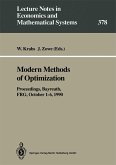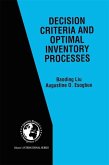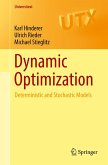Static models may be easier to formulate, but they often overlook the long-term consequences of decisions, promoting myopic practices that can lead to poor outcomes. In contrast, dynamic models foster a more comprehensive perspective, enabling foresight in decision-making - which is crucial for issues involving stock variables, such as pollution, reputation, and inventory. The book explores the limitations of static models, including their inability to capture long-term outcomes, history-dependent solutions, and the impact of abrupt contextual changes. It also highlights recent advances in dynamic modeling techniques that can enhance accuracy and help adapt to complex decision-making environments.
By promoting the shift from static to dynamic models, this book aspires to open new research opportunities and provide valuable insights for researchers, students, policymakers, and managers in the fields of economics and the management sciences.
Dieser Download kann aus rechtlichen Gründen nur mit Rechnungsadresse in A, B, BG, CY, CZ, D, DK, EW, E, FIN, F, GR, HR, H, IRL, I, LT, L, LR, M, NL, PL, P, R, S, SLO, SK ausgeliefert werden.









